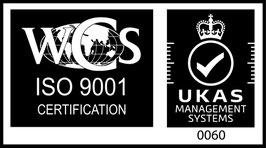We love the fresh air and beautiful views that underpin our way of life: it's alarming to admit that we are taking our beautiful Island for granted.
Is the time to consider the future opportunities of wellbeing and environmental sustainability?
One of the questions people have asked me most this year is - what are the economic benefits to our island community of achieving net-zero carbon emissions by 2050?
Could it be that the most significant economic benefits will be in the form of something we in the Isle of Man don't think about very much and take for granted - nature and well being?
We take our positive sense of well being on the Island as a given because of the abundant, easy connection with nature most of us enjoy every day.
The Isle of Man lifestyle offers unrivalled levels of wellbeing in the form of access to fresh air, beautiful views, unspoilt landscape and the wild sea, accessible from our doorsteps.
People intrinsically seek wellbeing. Contact with nature more than almost anything else gives people the most powerful sense of wellbeing.
Although we are not always consciously aware of it, nature underpins every person's wellbeing and ambitions – from health and happiness to prosperity and security.
According to the World Wide Fund for Nature's Living Planet Index 2018, all economic activity is underpinned by nature worth an estimated US$125 trillion. Nature provides a bounty of essential goods and services, such as food, clean air, flood protection and many more. It also has rich social, cultural, spiritual and religious significance, which policymakers need to value.
According to the WWF, over two-thirds of these contributions are in decline, with over 20% declining strongly, illustrating the detrimental economic effects of declines in the health of the natural world. Much of the current discussion regarding the Isle of Man Government's 2050 net-zero plan is around high-level issues such as energy strategy and the associated financial and political issues surrounding the Climate Change agenda. These are frequently complex technical discussions among people in the engineering and energy consultancy sectors, mostly focused on the technical problems of power generation, distribution and pricing.
These are vital issues, but discussion of the role of the natural environment is mostly relegated to a sideshow in the climate debate.
However, the WWF's figures highlight the vital importance of the natural world and its economic, social and cultural contribution. It would be interesting to apply the WWF's methodology for deriving nature's economic benefits to the Isle of Man.
People in the Isle of Man enjoy a high level of social and economic stability, but we have something else that is equally important but not always fully appreciated, something that is going to become increasingly valuable in the coming decades as ecosystems continue to decline: unparalleled access to the natural environment.
Although we have not been able to travel off the Island for anything other than essential reasons, we have enjoyed access to a vast range of natural habitats, ranging from hills and plains to glens, forests and beaches and plenty of clean, fresh air and water.
Our access to nature is not only convenient, but it is also equitable, being equally available to all levels of society regardless of social or economic status. This easy access to nature is valuable from a social perspective, as studies indicate that social and economic inequality tends to correspond to communities with poor access to nature, or low-quality natural environments.
The role of the natural environment is going to become increasingly vital as the Isle of Man works its way to its target of achieving its 2050 net zero emissions targets.
The Government has committed to several initiatives to increase natural carbon capture while enhancing the natural environment, as part of its climate action plan.
These initiatives include planting over 80,000 trees, restoring over 1,000 acres of peatlands, and new forest management plans to encourage biodiversity. There are also plans to develop planning advice on maximising carbon sequestration, restoring ecosystem services, and bringing in requirements for biodiversity net gain and appropriate Sustainable Drainage Systems in future planning policy.
Agriculture is also to be involved, and part of the transition will inevitably include a change in the role of farmers, from producers of food to stewards of the natural environment. If implemented, these initiatives will enhance the Isle of Man's already world-class natural environment by many orders of magnitude.
The upshot of these changes is a change in the way the natural environment is valued. Instead of seeing the natural environment as something to be exploited for raw materials, the new paradigm views it as a resource to conserve, protect and enhance to create social and economic value.
The most direct example of this is the growing awareness of the role of the natural environment in providing well being. Research over the past forty years has increasingly indicated that human beings are biologically inclined to have an affinity for life and nature for their well being and psychological fulfilment, and the social and economic implications of this have only recently become widely appreciated.
Singapore has invested billions since 1967, turning itself into the world's biggest garden city. Elsewhere, the world's leading cities are keenly aware of the benefits of the natural environment. For them, the prospect of turning into an overcrowded and polluted urban dystopia is all too real.
The degradation of natural ecosystems continues. Global economic centres will vie with one another to demonstrate the green credentials that will be vital for the wellbeing of their populations—enabling them to attract and retain the workforces needed to keep their economies rolling.
Yet, every one of us in the Isle of Man has instant access to a fantastic variety of countryside and outdoor amenities. This access to nature is part of the Island's unique appeal to those who are seeking a more balanced lifestyle in addition to business or work opportunities. In the coming years, the natural environment will become a vital part of countries' and cities' offering in the bid to attract the best and brightest to their shores.
But the competition is fierce. The Isle of Man exists in a global marketplace where countries and jurisdictions are competing not just for investment but also for human capital, in the forms of the creativity, knowledge and skills and experience of people. The Isle of Man has a valuable opportunity: we have on our doorstep what countries like Singapore are spending many millions to recreate.
We would be wise to start maximising our advantages.
Architects have control over our built environment. By changing the way we design cities and buildings to connect to rather than disconnect from nature, we can change our proximity to nature and shift our physical relationship to the environment. Poorly conceived design divides us into urban areas alienated from nature and has contributed to seeing the natural world as something isolated from us.
Unfortunately, this estrangement from nature directly impacts our health but also affects our ability to respond to modern challenges such as climate change, because these environmental topics feel entirely removed from our lives.
Designing with nature in mind makes financial sense. However, some only regard it as a luxury for property owners who want the best possible workplace for their employees, or who want to showcase their efforts to be more environmentally responsible. In reality, improving community wellbeing through connections with nature positively impacts the economy.
It makes sense to start noticing and taking care of the natural assets we have on our doorstep.
Most importantly, we need to strive for an environment that enhances and protects our way of life and wellbeing that we enjoy here in the Isle of Man. And we need to realise how valuable it is to each of us and the economy.
| bg-primary | |
| bg-primary-light | |
| bg-primary-dark | |
| bg-secondary | |
| bg-secondary-dark |
| body | |
| top-header | |
| header | |
| content |
| background | |
| text color | |
| link color | |
| horizontal line |
| style 1 | |
| style 2 | |
| style 3 | |
| text color |
| social icons | |
| navigation color | |
| subnav background |
| background color | |
| navigation color |
| Template configurations |
| has-right-nav g-font has-sticky-logo has-large-header |
| Navigation styles |
| size-15 weight-400 snip-nav --line01 |
| Content styles |
| form-white |
| Footer styles |
| o-form color-white |
|
Typography |
| Heading H1 |
| weight-400 |
| Heading H2 |
| weight-400 |
| Heading H3 |
| weight-400 |
| Buttons |
| weight-400 |
| Advanced settings |
| Animations |
| Custom CSS |
|
#cc-inner .my-class { background: #000; }
|
Note: All changes made here will be applied to your entire website.





